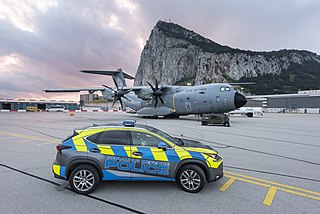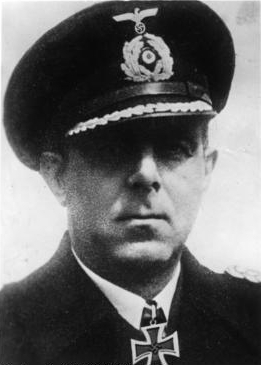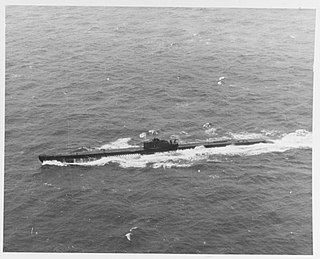Related Research Articles

Earl Russell Browder was an American politician, spy for the Soviet Union, communist activist and leader of the Communist Party USA (CPUSA). Browder was the General Secretary of the CPUSA during the 1930s and first half of the 1940s.

Royal Air Force Gibraltar or more simply RAF Gibraltar is a Royal Air Force station on Gibraltar. No military aircraft are currently stationed there, but RAF, Commonwealth and aircraft of other NATO nations will periodically arrive for transient stopovers, exercises, or other temporary duty. Administered by British Forces Gibraltar, the station is a joint civil-military facility that also functions as the Rock's civilian airport – Gibraltar Airport, with the civilian airport's passenger terminal building and apron facilities located on the north side of the runway while the apron and hangar of RAF Gibraltar are located on the south side of the runway.
The Minister of Aircraft Production was, from 1940 to 1945, the British government minister at the Ministry of Aircraft Production, one of the specialised supply ministries set up by the British Government during World War II. It was responsible for aircraft production for the British forces, primarily the Royal Air Force, but also the Fleet Air Arm.

Royal Air Force Wyton or more simply RAF Wyton is a Royal Air Force station near St Ives, Cambridgeshire, England. The airfield is decommissioned and is now used by the UK Strategic Command.

A Generaloberst was the second-highest general officer rank in the German Reichswehr and Wehrmacht, the Austro-Hungarian Common Army, the East German National People's Army and in their respective police services. The rank was equal to a four-star full general but below a general field marshal. The rank was equivalent to a Generaladmiral in the Kriegsmarine until 1945 or to a Flottenadmiral in the Volksmarine until 1990. It was the highest ordinary military rank and the highest military rank awarded in peacetime; the higher rank of general field marshal was awarded only in wartime by the head of state. In general, a Generaloberst had the same privileges as a general field marshal.

Frederick James Marquis, 1st Earl of Woolton,, was an English businessman and politician who served as chairman of the Conservative Party from 1946 to 1955.

This is a Timeline of the United Kingdom home front during World War II covering Britain 1939–45.

David McAdam Eccles, 1st Viscount Eccles, was an English Conservative politician.

Geoffrey William Geoffrey-Lloyd, Baron Geoffrey-Lloyd, PC, was a British Conservative politician.

Hellmuth Guido Alexander Heye was a German admiral in World War II and politician in post-war Germany. He was a recipient of the Knight's Cross of the Iron Cross of Nazi Germany.

Roundell Cecil Palmer, 3rd Earl of Selborne, CH, PC, known as "Top Wolmer" and styled Viscount Wolmer from 1895 to 1941, was a British administrator, intelligence officer and Conservative politician.
Parliamentary Secretary to the Ministry of Transport was a junior position at the British Ministry of Transport. The office was renamed Parliamentary Secretary to the Ministry of War Transport in 1941, but resumed its former name at the end of the Second World War.

The Allied leaders of World War II listed below comprise the important political and military figures who fought for or supported the Allies during World War II. Engaged in total war, they had to adapt to new types of modern warfare, on the military, psychological and economic fronts.

The Axis leaders of World War II were important political and military figures during World War II. The Axis was established with the signing of the Tripartite Pact in 1940 and pursued a strongly militarist and nationalist ideology; with a policy of anti-communism. During the early phase of the war, puppet governments were established in their occupied nations. When the war ended, many of them faced trial for war crimes. The chief leaders were Adolf Hitler of Nazi Germany, Benito Mussolini of Fascist Italy, and Hirohito of Imperial Japan. Unlike what happened with the Allies, there was never a joint meeting of the main Axis heads of government, although Mussolini and Hitler met on a regular basis.

Although most Australian civilians lived far from the front line, the Australian home front during World War II played a significant role in the Allied victory and led to permanent changes to Australian society.

The 83rd Infantry Division,, was a German reserve and security formation during World War II.

Uruguay remained neutral for most of World War II. The policy of President Alfredo Baldomir, leading the Colorado Party, was to support the Allied cause, but from a neutral base. Great Britain retained considerable influence with the Baldomir regime, largely through the efforts of Sir Eugen Millington-Drake, who was the British Minister in Montevideo from 1934 to 1941. In January 1942, Baldomir terminated diplomatic relations with the Axis powers. He resigned in 1943 and his neutrality policy was continued by his successor Juan José de Amézaga, also of the Colorado Party. In February 1945, having signed the Declaration by United Nations, Amézaga declared war on Germany and Japan.

Argo was a French Navy Redoutable-class submarine of the M6 series commissioned in 1933. She participated in World War II, first on the side of the Allies from 1939 to June 1940, then in the navy of Vichy France until November 1942, and finally in the Free French Naval Forces through the end of the war. Along with Archimède, Casabianca, Le Centaure, and Le Glorieux, she was one of only five out of the 31 Redoutable-class submarines to survive the war.
References
- 1 2 "Permanent secretaries and other senior appointments since 1900" (PDF). www.gulabin.com. Retrieved 24 February 2014.